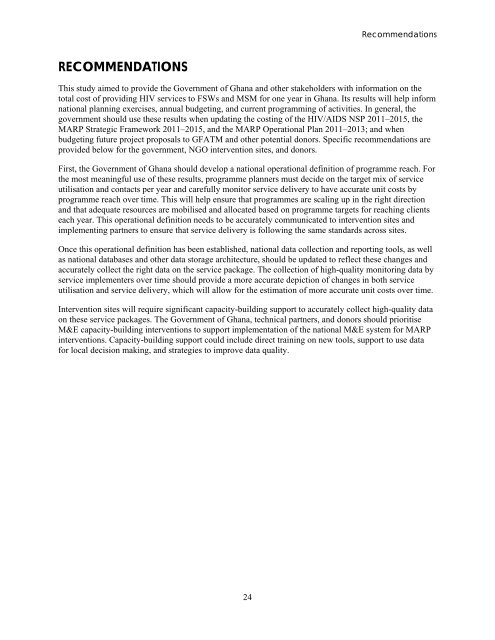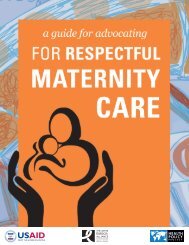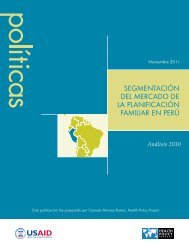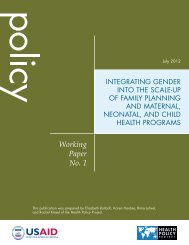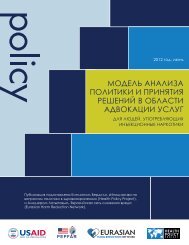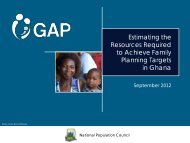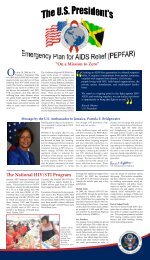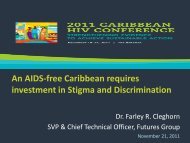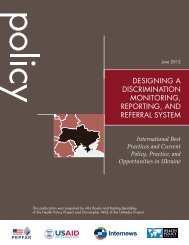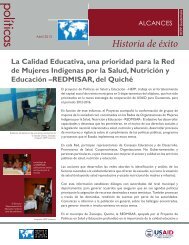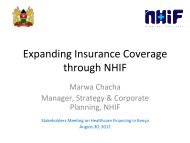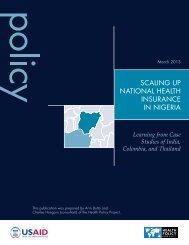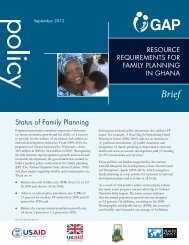Working Paper No. 6 - Health Policy Project
Working Paper No. 6 - Health Policy Project
Working Paper No. 6 - Health Policy Project
Create successful ePaper yourself
Turn your PDF publications into a flip-book with our unique Google optimized e-Paper software.
Recommendations<br />
RECOMMENDATIONS<br />
This study aimed to provide the Government of Ghana and other stakeholders with information on the<br />
total cost of providing HIV services to FSWs and MSM for one year in Ghana. Its results will help inform<br />
national planning exercises, annual budgeting, and current programming of activities. In general, the<br />
government should use these results when updating the costing of the HIV/AIDS NSP 2011–2015, the<br />
MARP Strategic Framework 2011–2015, and the MARP Operational Plan 2011–2013; and when<br />
budgeting future project proposals to GFATM and other potential donors. Specific recommendations are<br />
provided below for the government, NGO intervention sites, and donors.<br />
First, the Government of Ghana should develop a national operational definition of programme reach. For<br />
the most meaningful use of these results, programme planners must decide on the target mix of service<br />
utilisation and contacts per year and carefully monitor service delivery to have accurate unit costs by<br />
programme reach over time. This will help ensure that programmes are scaling up in the right direction<br />
and that adequate resources are mobilised and allocated based on programme targets for reaching clients<br />
each year. This operational definition needs to be accurately communicated to intervention sites and<br />
implementing partners to ensure that service delivery is following the same standards across sites.<br />
Once this operational definition has been established, national data collection and reporting tools, as well<br />
as national databases and other data storage architecture, should be updated to reflect these changes and<br />
accurately collect the right data on the service package. The collection of high-quality monitoring data by<br />
service implementers over time should provide a more accurate depiction of changes in both service<br />
utilisation and service delivery, which will allow for the estimation of more accurate unit costs over time.<br />
Intervention sites will require significant capacity-building support to accurately collect high-quality data<br />
on these service packages. The Government of Ghana, technical partners, and donors should prioritise<br />
M&E capacity-building interventions to support implementation of the national M&E system for MARP<br />
interventions. Capacity-building support could include direct training on new tools, support to use data<br />
for local decision making, and strategies to improve data quality.<br />
24


